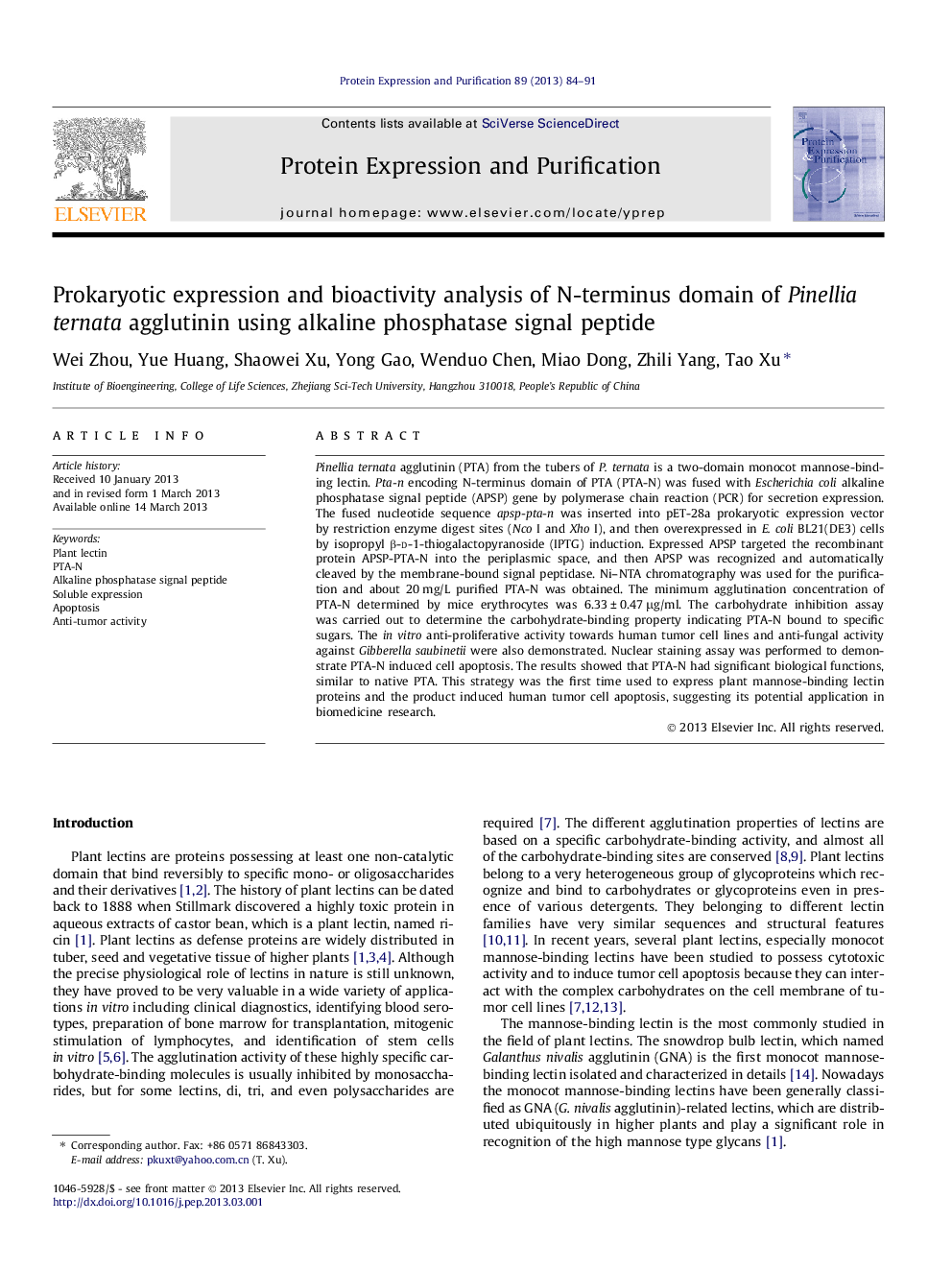| Article ID | Journal | Published Year | Pages | File Type |
|---|---|---|---|---|
| 2020714 | Protein Expression and Purification | 2013 | 8 Pages |
Abstract
Pinellia ternata agglutinin (PTA) from the tubers of P. ternata is a two-domain monocot mannose-binding lectin. Pta-n encoding N-terminus domain of PTA (PTA-N) was fused with Escherichia coli alkaline phosphatase signal peptide (APSP) gene by polymerase chain reaction (PCR) for secretion expression. The fused nucleotide sequence apsp-pta-n was inserted into pET-28a prokaryotic expression vector by restriction enzyme digest sites (Nco I and Xho I), and then overexpressed in E. coli BL21(DE3) cells by isopropyl β-d-1-thiogalactopyranoside (IPTG) induction. Expressed APSP targeted the recombinant protein APSP-PTA-N into the periplasmic space, and then APSP was recognized and automatically cleaved by the membrane-bound signal peptidase. Ni-NTA chromatography was used for the purification and about 20 mg/L purified PTA-N was obtained. The minimum agglutination concentration of PTA-N determined by mice erythrocytes was 6.33 ± 0.47 μg/ml. The carbohydrate inhibition assay was carried out to determine the carbohydrate-binding property indicating PTA-N bound to specific sugars. The in vitro anti-proliferative activity towards human tumor cell lines and anti-fungal activity against Gibberella saubinetii were also demonstrated. Nuclear staining assay was performed to demonstrate PTA-N induced cell apoptosis. The results showed that PTA-N had significant biological functions, similar to native PTA. This strategy was the first time used to express plant mannose-binding lectin proteins and the product induced human tumor cell apoptosis, suggesting its potential application in biomedicine research.
Related Topics
Life Sciences
Biochemistry, Genetics and Molecular Biology
Biochemistry
Authors
Wei Zhou, Yue Huang, Shaowei Xu, Yong Gao, Wenduo Chen, Miao Dong, Zhili Yang, Tao Xu,
